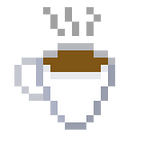Review: The Complete Software Developer’s Career Guide
The biggest strength of The Complete Software Developer’s Career Guide is its breadth. The book provides guidance for any subject surrounding, and each stage of, a programmer’s career. From a point of total unfamiliarity to the software design world, all the way to a position of senior developer, it would be difficult to pick up this book and not learn something new.
The contents John Somnez’ Career Guide can be separated into two broad categories: instruction, and advice. Large stretches of the book are devoted to detailing the activities of a programmer day-to-day, and the information contained would be mostly the same regardless of the author, excepting the word-choice and phraseology. The rest of the book contains insights about how the author dealt with and approached his career, and this, of course, is unique to John Somnez.
Regarding the educational content, this book is no substitute for a dedicated technical text. It is effective at providing enough of an introduction to the variety of subjects which it covers that a person would be able to, say, answer a few questions during an interview. More importantly it provides enough familiarity for pick up deeper study of the subject.
The advice content is solid, although one needs to keep in mind who the advice is actually coming from. Somnez, to give a brief description, went from Q&A tester to programmer, changed jobs several times within that profession, and eventually started his own business. Although he stresses that his is not the only route one can take through their career, his advice is clearly influenced by it. For instance, he notes that recieving certificates for a technology or product which one wants to work with is a good way to demonstrate interest in that job to an employer; and this is exactly what he did to transition from QA to programmer.
The degree by which the advice or educational content will prove useful is dependent upon the identity of the reader. Below is an outline for a few profiles in which I explain how much benefit I believe the book provides for each.
Novice
A high schooler, early college student, or a person in another field looking to become a programmer fits this profile. The novice will get by far the most benefit from this book; I would recommend reading it immediately.
The instructional parts of the book will serve to fill in unknown unknowns about the technical aspects of the field in which the novice needs to educate themself. In terms of advice, Somnez spends a lot of time focusing on the importance of motivation and overcoming obstacles, and so it is best recieved by someone just starting out.
Really, the only downsides for this sort of person is that the lattermost chapters, about advancing ones career, are going to be inapplicable in the short term and probably obsolete in the long term.
Beginner
Someone who is already recieving education for programming, be it through college, a boot-camp, or self-teaching. Most of the instruction is actually just as helpful for this sort of person. There is an enormous difference between being proficient in programming and understanding the many processes which go on around programming in a coding job. The advice portions are also helpful for this sort of person, for the same reason as above.
Early Professional
From this point onwards the educational content of the book becomes less and less useful, because of course you need to know most of it to do your job. Still, there are sometimes gaps which need to be filled in, or concepts that the typical early professional might not typically be exposed to, such as test-driven programming. Somnez’ advice, on the other hand, can prove quite beneficial for both the immediate decisions that a early professional needs to make, and also for building ideas about the direction in which they want to steer their career as a whole.
Falling into this category myself, a minor nitpick I have with some of Somnez’ advice is that he can focus only on worst case scenarios. His chapters on dealing with co-workers and bosses, for instance, mostly focus on how to deal with bad co-workers and bad bosses, leaving the matter of average or goods ones untreated.
Experienced Professional
At this point you definitely already know all of the technical information contained in the book — or at least, any of it that will ever be pertinent to your role — and you probably have personal experience with most of the situations which Somnez gives advice about. If you fit this description, and you are content in your role and envision a bright future at your current company, then the Career Guide has very little use for you in general. If you are considering the prospect of changing jobs, or trying to start your own company, however, there are chapters in the book dedicated to that.
Overall
My recommendation to the average reader, that is, a person interested or involved in software development, irrespective of their experience or current position, is an 7/10 for the eBook and a 5/10 for the hardcopy.
Whether you chose to read it or not, keep your coffee hot, and your code chill.
